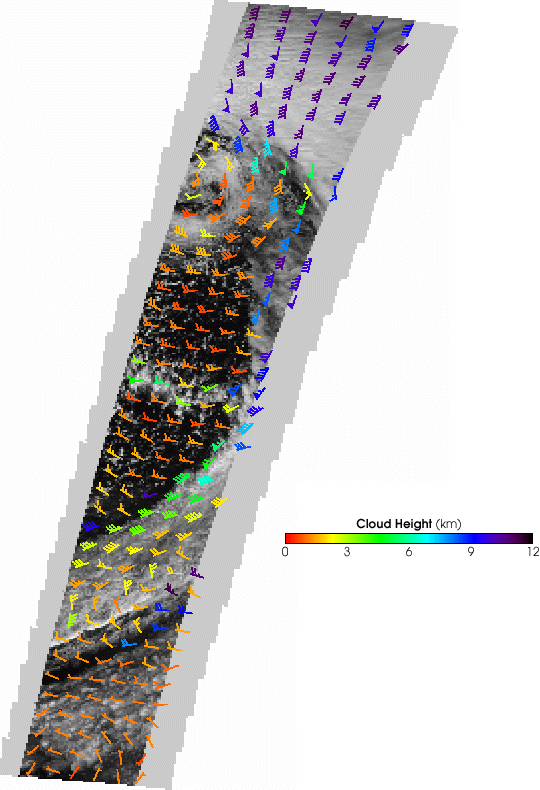


Scientists for the first time ever can simultaneously measure the height and motion of clouds over Earth from pole to pole, which may improve weather forecasts.
Never before have researchers directly measured cloud heights from a single satellite, simultaneously measured cloud heights and winds, and done this above Earth’s polar regions as well as lower latitudes.
Professor Roger Davies and graduate research assistant Akos Horvath of the University of Arizona, Tucson, report first results on cloud winds and heights from NASA's polar-orbiting Terra satellite’s Multi-angle Imaging SpectroRadiometer (MISR) in the Aug. 1 issue of Geophysical Research Letters.
Simultaneous measurement of cloud heights accurate to within 400 meters (about 1,300 feet) and cloud winds accurate to within 3 meters (about 10 feet) per second anywhere over the globe is a potential boon for meteorology, Davies said. While Terra is a research satellite, not an operational satellite, the success of the radiometer’s fully automated multi-angle imaging technique “pioneers the possibility of deploying an operational satellite to gain wind information within the atmosphere, especially over the data-sparse areas of the oceans, for improved weather forecasts,” he said.
The image above is an example of MISR’s capabilities. Wind vectors are superimposed on a visible light image of a cyclone over the northeast Pacific Ocean. (Wind is blowing in the direction the flag "poles" are pointing.) ‘Barbs’ indicate wind speed. Each half barb represents a wind speed of 5 meters per second, a full barb is 10 meters per second, and a flag is 50 meters per second. Color corresponds to cloud height.
For more information, read NASA Gives Pole-To-Pole View of Cloud Heights and Winds
Image courtesy Roger Davies and Akos Horvath, University of Arizona Radiation, Clouds and Climate Laboratory based on data from the NASA/GSFC/LaRC/JPL, MISR Team.